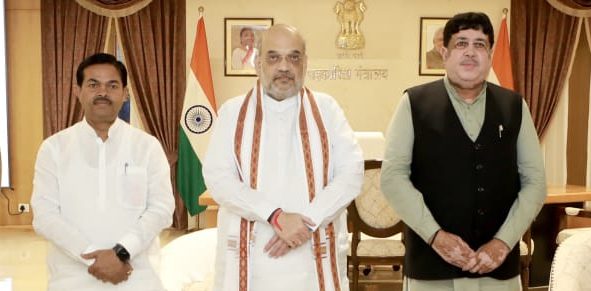Among changes brought about in the older MSCS Act, 2002, the Cooperative Education Fund remains, perhaps a single area where the Ministry and the NCUI have failed to agree. While NCUI insisted that it be made the sole custodian of the Fund, the Ministry felt that the compliance of contributions would be best served if the govt has the custody of the Cooperative Education Fund.
NCUI leaders made several attempts to convince the government on the issue of retaining the custody of the Fund. Some of the leaders even met the JPC and argued their points, but all went in vain. Their argument that the Fund is primarily collected from cooperatives and as such the govt has no role to play, did not cut any ice either with the Ministry or the JPC.
We are presenting below verbatim what the new Act says on the Cooperative Education Fund.
Excerpts:
In the principal rules, for rule 25, the following rule shall be substituted, namely:—
“25. The Co-operative Education Fund.— (1) Every multi-State cooperative society shall credit a sum calculated at one per cent of its net profits every year as contribution, within six months from the closing of the relevant financial year, towards the account of the Co-operative Education Fund, maintained by the Central Government.
(2) The Co-operative Education Fund shall be maintained and administered by a Committee constituted by the Central Government, consisting of the following members, namely:—
(a) The Secretary, Ministry of Cooperation – Chairperson;
(b) The Central Registrar – Member;
(c) The Financial Adviser to the Ministry of Co-operation – Member;
(d) Two representatives of multi-State co-operative societies to be nominated by the Central Government on rotation basis for every two years – Members;
(e) The Secretary, National Council of Co-operative Training, New Delhi– Member;
(f) The Chief Executive Officer, National Co-operative Union of India Limited, New Delhi – Member
(g) The Director, Vaikunth Mehta National Institute of Co-operative Management, Pune – Member; and
(h) Representative from National Co-operative University.
(3) The Central Government shall maintain the Co-operative Education Fund in a separate account, and all income by way of interest or otherwise accruing from the contribution towards the fund, shall be credited to the Fund.
(4) No expenditure out of the Co-operative Education Fund shall be incurred without the approval of the Committee constituted under sub-rule (2).
(5) The balance standing in the Co-operative Education Fund maintained by the National Co-operative Union of India Ltd., shall be transferred by the Chief Executive Officer of the National Co-operative Union of India to the Co-operative Education Fund maintained by the Central Government on the date of the notification of these rules.
(6) Subject to such directions as the Committee may give from time to time, the Co-operative Education Fund may be utilised for any of the following purposes, namely:—
(a) education of the members, directors including office-bearers and employees of multi-State co-operative societies and the general public in the principles and practice of co-operation;
(b) human resource development in multi-State co-operative societies;
(c) development of multi-State co-operative societies;
(d) capacity building and business management;
(e) professionalisation;
(f) technical upgradation;
(g) education, training, national co-operative database, research, manpower and power and related infrastructure;
(h) research and development;
(i) development of the co-operative movement in general;
(j) co-operative awareness and publicity;
(k) publication of books and journals relating to the cooperative movement;
(l) conduct of research, case studies and education in the field of co-operative movement;
(m) award of prize, or honorarium for rendering meritorious service to the cause of the multi-State cooperative movement; and
(n) any other purpose as may be determined by the Central Government for strengthening the co-operative movement.”.
